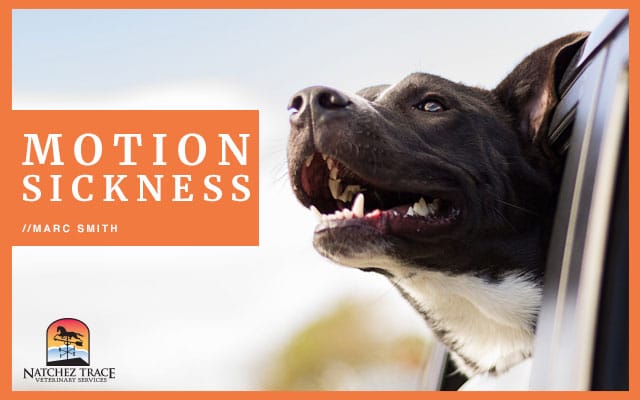Did you know 1 in 5 dogs experience dog motion sickness when traveling?
As I’m sure you can appreciate, canine motion sickness turns a sweet family vacation into a dreaded nightmare.
Not to diminish the fact that you don’t want Fido uncomfortable, but cleaning up the vomit, caring for your sick dog, and trying to relax seem a remote possibility.
“Why did I bring my dog?” you think!
The fact is… 37% of dog owners took a dog on overnight car trips in 2016, according to a survey by the American Pet Products Association.
However, only 6% of dog owners who observed signs of motion sickness reported them to a veterinarian.
Interestingly, motion sickness is a problem in which the veterinarian can help both you and your dog.
So if your pup gets motion sickness, don’t let him suffer this holiday season.
Because solutions exist for canine motion sickness!
3 Symptoms of Dog Motion Sickness:
Dog motion sickness and a virus have similar symptoms. However, canine motion sickness often manifests in a very specific manner through the following signs:
1. Lip Licking
After the car starts moving, you may notice your pup licking his lips. This behavior is a common, early symptom of motion sickness. Dry heaving, whining, or yawning may follow.
2. Drooling
Drooling is another common symptom of canine motion sickness.
Your pup’s nausea causes his mouth to water like he’s waiting for a beef jerky treat.
3. Shaking
Just like when you feel car sick, your pup won’t feel well.
He may shake, pace, or seem restless.
Because Fido just wants to feel better.
If he isn’t antsy, he might seem inactive.
Sometimes Fido just wants to lie down and wait to feel better.
There are several optional treatments for dog motion sickness or dog car sickness. Here are the following:
1. Western Solutions for Canine Motion Sickness
Dr. Smith offers pet parents a variety of treatment options based on the needs of the individual pet. But for motion sickness from a Western standpoint, nothing beats Cerenia.
Cerenia
Dr. Smith and his staff recommend Cerenia, the only FDA-approved medication for the prevention of vomiting due to motion sickness in dogs.
Cerenia benefits a variety of breeds, with no significant adverse effects reported by owners in a controlled study.
Cerena’s unique action as an NK-1 receptor antagonist provides broader efficacy than other commonly used treatments.
The once-daily dose tablet is safe for dogs 4 months of age and older.
2. Alternative Solutions for Canine Motion Sickness
Eastern or alternative treatments benefit those looking for non-traditional options.
doTERRA DigestZen
DigestZen, doTERRA’s “tummy tamer” blend, aids in digestion, soothes stomach upset, and maintains overall digestive health.
DigestZen works well for both humans and pets.
The DigestZen blend contains ginger, fennel, peppermint, tarragon, anise, coriander, and caraway.
Administer DigestZen by placing a few drops in your hands, rub them together, and then rub it on your pup’s tummy.
You can dilute the oil with fractionated coconut oil to minimize skin sensitivity.
Huo Xiang Zheng Qi
Huo Xiang Zheng Qi is an Eastern Herbal blend formulated by Jing Tang Herbal founder Dr. Xie.
Dr. Xie created the veterinary formula of Huo Xiang Zheng Qi from a Chinese recipe written in 1080.
Huo Xiang Zheng Qi eliminates the root cause of car and travel sickness by moving Stomach Qi downward.
Dosage for dogs is 0.5 grams per 10-20 lbs. of body weight, twice daily.
Does your pup suffer from motion sickness? Are you looking for traditional or alternative solutions?
If your pet is sick, in pain, or isn’t acting quite right, contact us today to set up an appointment with Dr. Marc Smith.
We’ll work with you to find the best course of treatment to get your companion back in perfect health!







